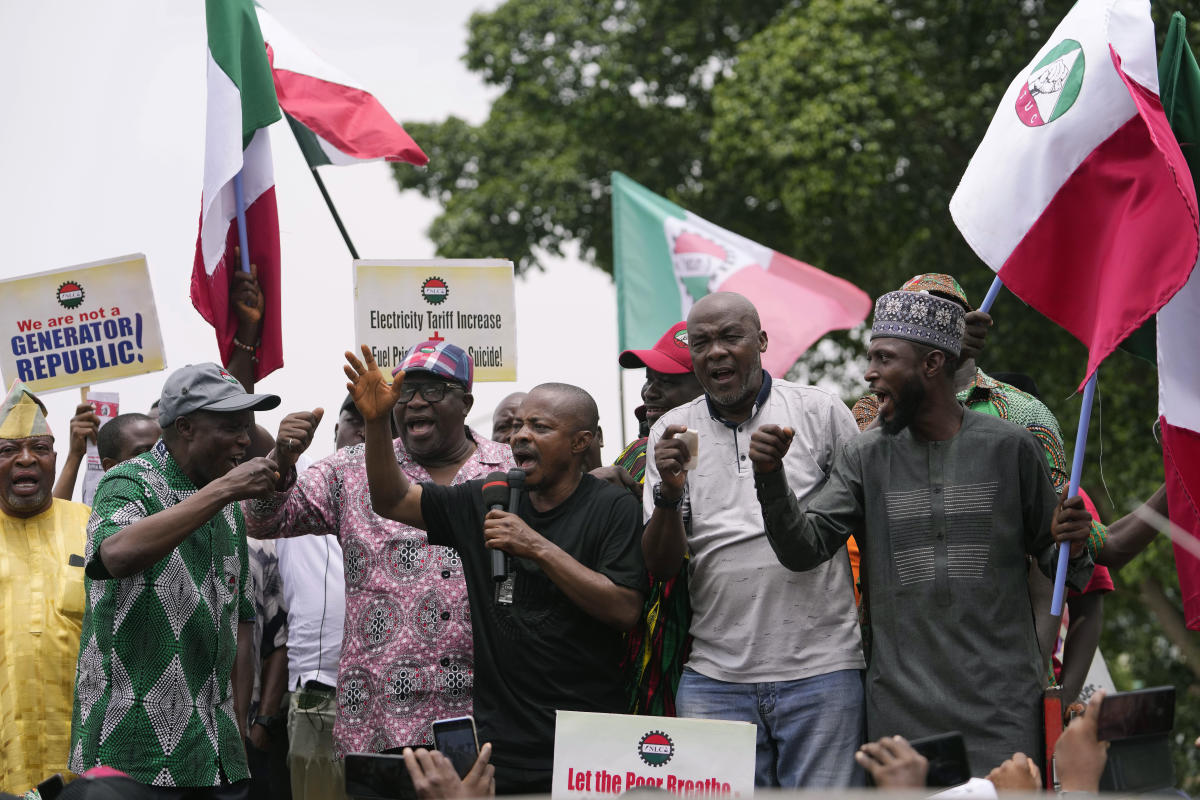GOMBE, Nigeria (AP) — Africa’s most populous country came to a standstill Monday, with an electricity outage and the closure of major airports, as Nigeria’s largest unions began striking to demand a pay rise amid its worst crisis in the cost of living in decades.
President Bola Tinubu’s economic reforms – including ending fuel subsidies – have resulted in rising inflation that has reached a 28-year high.
In this latest strike, workers shut down the national electricity grid and chased away operators from a key transmission station, the Transmission Company of Nigeria said, adding that other workers sent to restore power were blocked.
Elsewhere, government workers did not show up or closed office entrances, including at airports in the capital Abuja and the economic hub of Lagos. All aviation workers must stay away “until further notice”, their association said.
“We demand a living wage,” the Nigerian Labor Congress said on X, describing what they currently earn as “starvation wages.” Congress and the Trade Union Congress represent hundreds of thousands of government workers in key industries.
The unions want the current minimum monthly wage of 30,000 naira ($20) to be increased to almost 500,000 naira ($336). The government offers 60,000 naira ($40).
The unions’ demand would increase the government’s wage bill by 9.5 trillion ($6.3 billion), which has the potential to “destabilize the economy”, Information Minister Mohammed Idris has said.
After the Nigerian president ended decades-long but costly fuel subsidies on his first day in office in May last year, gas prices at one of Africa’s largest oil producers more than doubled. Prices for public transport and raw materials rose enormously.
Tinubu’s government also devalued the naira currency to encourage foreign investment, further increasing the prices of basic goods in the import-dependent country of more than 210 million people.






